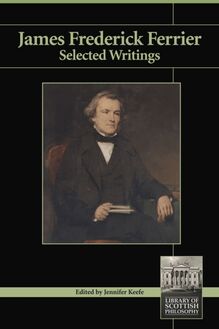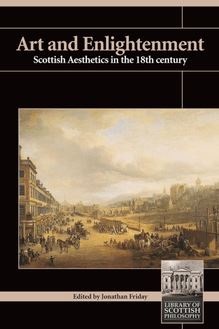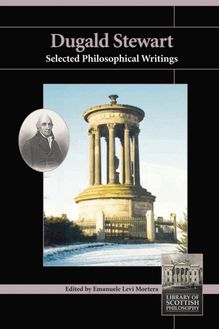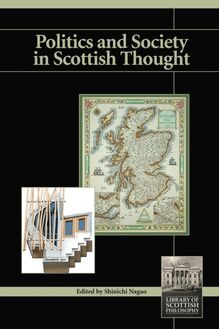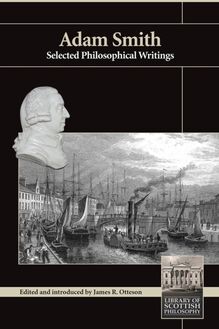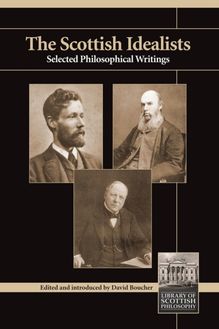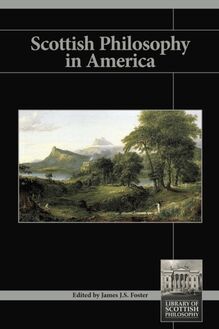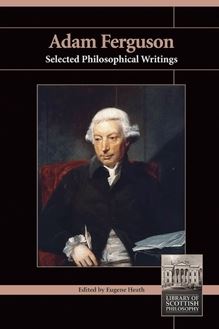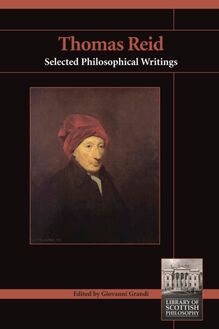-
 Univers
Univers
-
 Ebooks
Ebooks
-
 Livres audio
Livres audio
-
 Presse
Presse
-
 Podcasts
Podcasts
-
 BD
BD
-
 Documents
Documents
-
- Cours
- Révisions
- Ressources pédagogiques
- Sciences de l’éducation
- Manuels scolaires
- Langues
- Travaux de classe
- Annales de BEP
- Etudes supérieures
- Maternelle et primaire
- Fiches de lecture
- Orientation scolaire
- Méthodologie
- Corrigés de devoir
- Annales d’examens et concours
- Annales du bac
- Annales du brevet
- Rapports de stage
La lecture à portée de main
Vous pourrez modifier la taille du texte de cet ouvrage
Découvre YouScribe en t'inscrivant gratuitement
Je m'inscrisDécouvre YouScribe en t'inscrivant gratuitement
Je m'inscrisEn savoir plus
Vous pourrez modifier la taille du texte de cet ouvrage
En savoir plus

Description
Sujets
Informations
| Publié par | Andrews UK |
| Date de parution | 19 septembre 2012 |
| Nombre de lectures | 0 |
| EAN13 | 9781845404536 |
| Langue | English |
Informations légales : prix de location à la page 0,0550€. Cette information est donnée uniquement à titre indicatif conformément à la législation en vigueur.
Extrait
Title Page
Thomas Reid
Selected Philosophical Writings
Edited and Introduced
by Giovanni B. Grandi
Copyright Page
Copyright © Giovanni B. Grandi, 2012
The moral rights of the author have been asserted.
No part of this publication may be reproduced in any form without permission, except for the quotation of brief passages in criticism and discussion.
Originally published in the UK by Imprint Academic
PO Box 200, Exeter EX5 5YX, UK
Originally published in the USA by Imprint Academic
Philosophy Documentation Center
PO Box 7147, Charlottesville, VA 22906-7147, USA
2012 digital version by Andrews UK Limited
www.andrewsuk.com
Full series details:
www.imprint-academic.com/losp
Dedication
In memory of my father, Mario Grandi
Series Editor’s Note
The principal purpose of volumes in this series is not to provide scholars with accurate editions, but to make the writings of Scottish philosophers accessible to a new generation of modern readers in an attractively produced and competitively priced format. In accordance with this purpose, certain changes have been made to the original texts: Spelling and punctuation have been modernized. In some cases the selections have been given new titles. Some original footnotes and references have not been included. Some extracts have been shortened from their original length. Quotations from Greek have been transliterated, and passages in languages other than English translated, or omitted altogether.
Care has been taken to ensure that in no instance do these amendments truncate the argument or alter the meaning intended by the original author. For readers who want to consult the original texts, full bibliographical details are provided for each extract.
The Library of Scottish Philosophy was originally an initiative of the Centre for the Study of Scottish Philosophy at the University of Aberdeen. The first six volumes, published in 2004, were commissioned with financial support from the Carnegie Trust for the Universities of Scotland. In 2006 the CSSP moved to Princeton where it became one of three research centers within the Special Collections of Princeton Theological Seminary, and with the Seminary’s financial support more volumes have been published. Selections from Thomas Reid is the fourteenth volume in the series and has been prepared for publication by Olivia Lane, to whom a special debt of gratitude is owed.
Acknowledgements
The CSSP gratefully acknowledges financial support from the Carnegie Trust and Princeton Theological Seminary, the enthusiasm and excellent service of the publisher Imprint Academic, and the permission of the University of Aberdeen Special Collections and Libraries to use the engraving of the Faculty of Advocates (1829) as the logo for the series.
Gordon Graham,
Princeton, January 2012
Giovanni B. Grandi: Introduction
Thomas Reid (1710-1796) is the main representative of the Scottish ‘common sense’ school of philosophy. His works were popular until the mid-nineteenth century, especially in Britain, France, and North America. Although Reid has been the object of recurring scholarly and philosophical interest, his reputation may have suffered from the quick and dismissive comments given by Kant in the introduction to the Prolegomena to any Future Metaphysics (1783). Kant criticized Reid, James Beattie (1735-1803), James Oswald (1703-1793), and Reid’s opponent, Joseph Priestley (1703-1804), for having misconstrued Hume’s question concerning causality, and also for their appeal to common sense - an appeal that Kant considers no different than having recourse to the judgment of the multitude. [1] Most likely, Kant never read Reid’s works, nor had the opportunity to appreciate them in their real significance. Reid, on his part, thought that Hume’s chief merit lay in having drawn out consistently the implications of a particular account our cognitive functions, the ‘theory of ideas’.
I
In a letter to James Gregory (1753-1821), from 1790, Reid drew a summary balance of his contribution to philosophy:
It would be want of candour not to own, that I think there is some merit in what you are pleased to call my Philosophy ; but I think it lies chiefly in having called in question the common theory of Ideas or Images of things in the mind being the only object of thought; a theory founded on natural prejudices, and so universally received as to be interwoven with the structure of language. Yet were I to give you a detail of what led me to call in question this theory, after I long held it self-evident and unquestionable, you would think, as I do, that there was much of chance in the matter. The discovery was the birth of time, not of genius; and BERKELEY and HUME did more to bring it to light than the man that hit upon it. I think there is hardly any thing that can be called mine in the philosophy of the mind, which does not follow with ease from the detection of this prejudice. [2]
According to Reid, the theory of ideas was founded on ‘natural prejudices’, and ‘interwoven with the structure of language’. Among the prejudices he alluded to was the analogy drawn between the operations of the mind and the actions of bodies. Some verbs expressing mental operations, such as ‘to apprehend’, ‘to conceive’, ‘to comprehend’, and ‘to grasp’, are indeed derived from descriptions of interactions between bodies (or, more precisely, they are derived from the actions of our own self-directed body on other physical objects). [3] Reid thought that past philosophers had elevated to the dignity of philosophical theory the analogy embedded in the etymology of these expressions. They had taken for granted that principles explaining the interaction of bodies - e.g. that no body can act where it is not, and that no body can act on another at a distance - could be equally applied to the cognitive relation between the mind and its objects. [4]
Philosophers also thought that consciousness clearly testifies the immediate presence to the mind itself of some of its objects: ‘Of those things that are observed with the mind, certain are present in the mind itself, such as thought, desire, affection, and other operations of the mind; [...] the mind by its very nature is endowed with an awareness of its own operations, so much so that it can perceive whatever is in itself.’ [5] After all, not even the worst sceptic of all, Hume, doubted of the existence of impressions and ideas, conceived as objects of consciousness. [6] The theory of ideas was thus used primarily to explain other acts of the mind beside consciousness: the perception by our senses of objects that are situated at a distance from (the seat of) the mind, the remembrance of past events to which we have been witnesses, and the conception of objects that do not presently or ever exist. Whenever an object cannot be immediately present to the mind, a representative idea takes its place in the mind. But what is present to the mind is an object of consciousness. In this way - as Reid explained in the Philosophical Orations - all operations of the mind were resolved into the faculty of consciousness. [7] Nor was Reid unaware that philosophers might not necessarily conceive of this proxy object as an image of the original object. In the Philosophical Orations , he explicitly considered the possibility of ideas being symbols that do not resemble the original objects they stand for. [8]
Like many of his contemporaries - among them, his erstwhile teacher at Marischal College, George Turnbull (1698-1749), and his philosophical opponents, Hume and Joseph Priestley - Reid saw himself as trying to apply the new experimental method of reasoning to the philosophy of mind. He thought it was a great merit of Newton to have reduced to a system of rules the methodological principles already presented by Bacon. [9] He occasionally refers to the regulæ philosophandi ( rules for philosophizing ) that Newton listed at the beginning of Book III of the Principia . Newton’s first rule states that the causes of natural phenomena must satisfy two conditions: causes must be real, and they must be sufficient to explain the phenomena in question. [10] According to Reid, the theory of ideas failed on both counts. There is no evidence for the existence of ideas, and even if, for the sake of argument, we assume that they do exist, they cannot explain the various operations of the mind, including consciousness, sensation, perception, memory, and conception.
Already Descartes and his followers had refuted the hypothesis of physical images sent forth from the external objects to the organs of sense. [11] But - Reid claimed - modern philosophers stopped short in their criticism: there is no evidence for the existence of images of external objects in the brain, nor is there any evidence that images can be transmitted from the organs of sense to the brain. Although no sensory perception occurs without some impression made by external objects, whether directly or indirectly, on sense organs, there is no evidence that sense organs are actually impressed with images of the external objects. The only sense organs where we find images of external objects are the eyes, but what we perceive in vision are not the images on the retinas: these are double and inverted in relation to the objects we actually see. [12]
If the existence of images in the brain is doubtful, the hypothesis of images in the mind is hardly intelligible, according to Reid. How indeed can we speak of images in the mind? If these images resemble external objects, they must have size, figure, and extension. Should we not then assume the mind, where these images are located, to have size, figure, and extension as well?
-
 Univers
Univers
-
 Ebooks
Ebooks
-
 Livres audio
Livres audio
-
 Presse
Presse
-
 Podcasts
Podcasts
-
 BD
BD
-
 Documents
Documents
-
Jeunesse
-
Littérature
-
Ressources professionnelles
-
Santé et bien-être
-
Savoirs
-
Education
-
Loisirs et hobbies
-
Art, musique et cinéma
-
Actualité et débat de société
-
Jeunesse
-
Littérature
-
Ressources professionnelles
-
Santé et bien-être
-
Savoirs
-
Education
-
Loisirs et hobbies
-
Art, musique et cinéma
-
Actualité et débat de société
-
Actualités
-
Lifestyle
-
Presse jeunesse
-
Presse professionnelle
-
Pratique
-
Presse sportive
-
Presse internationale
-
Culture & Médias
-
Action et Aventures
-
Science-fiction et Fantasy
-
Société
-
Jeunesse
-
Littérature
-
Ressources professionnelles
-
Santé et bien-être
-
Savoirs
-
Education
-
Loisirs et hobbies
-
Art, musique et cinéma
-
Actualité et débat de société
- Cours
- Révisions
- Ressources pédagogiques
- Sciences de l’éducation
- Manuels scolaires
- Langues
- Travaux de classe
- Annales de BEP
- Etudes supérieures
- Maternelle et primaire
- Fiches de lecture
- Orientation scolaire
- Méthodologie
- Corrigés de devoir
- Annales d’examens et concours
- Annales du bac
- Annales du brevet
- Rapports de stage
